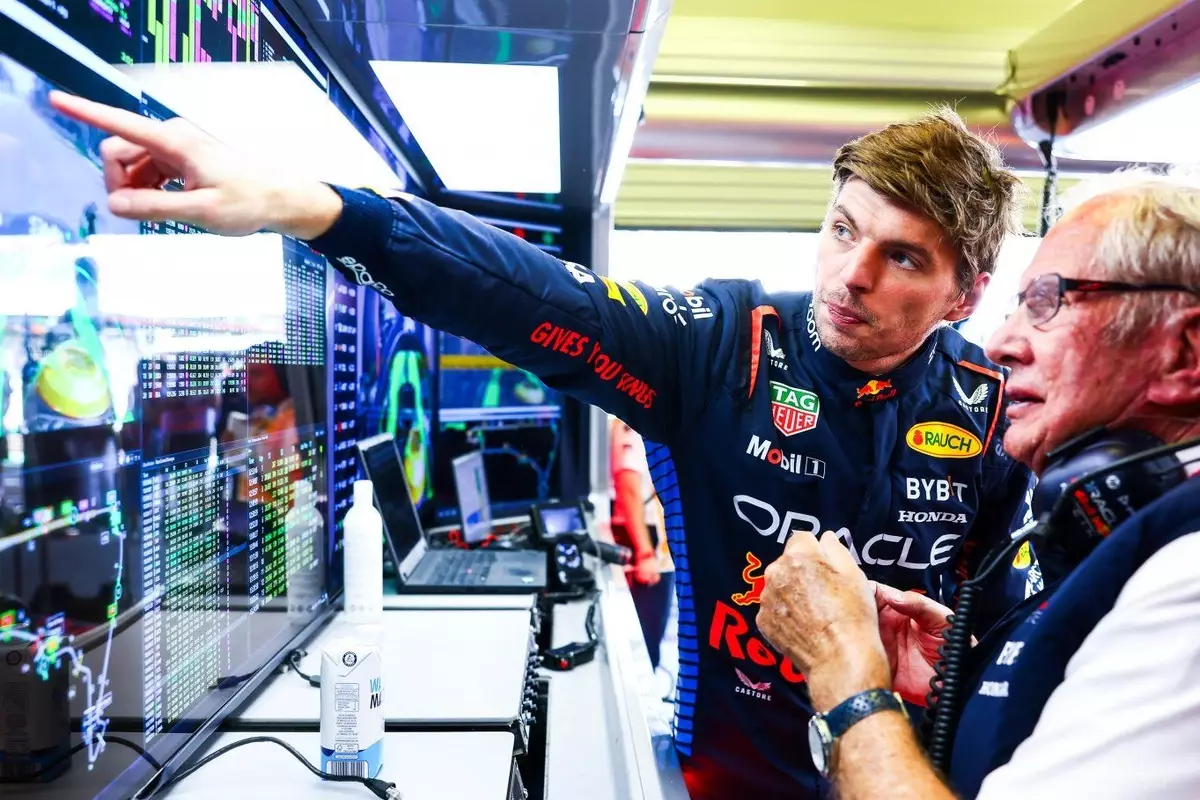As Red Bull Racing gears up for the 2025 Formula 1 season, a shift in focus is palpable within the organization. Instead of merely pursuing a substantial increase in downforce with their RB21, the team is prioritizing the enhancement of car balance and drivability. This strategic pivot comes on the heels of a challenging 2023 season, where, despite Max Verstappen clinching the drivers’ championship, Red Bull could only secure third place in the constructors’ standings. The rise of rivals, particularly McLaren and Ferrari, signaled that just a few additional downforce points would not suffice to maintain their competitive edge.
The team’s motorsport advisor, Helmut Marko, openly acknowledged in his column that it is crucial to improve the car’s operating window. He emphasized that even minor changes in temperature or technical adjustments can lead to drastic imbalances, which in turn can compromise performance on the track. This insight underscores an evolving understanding within the team: consistent handling translates to increased driver confidence and, ultimately, superior race times. Marko’s assertion that achieving a balance that provides predictability is key reflects a fundamental shift in how Red Bull approaches car development.
Looking ahead, Red Bull is acutely aware of the tightening competition in the 2025 season. The current regulations will persist for another cycle, and with that stability, the likelihood of teams optimizing their existing designs grows. Marko noted that the increased proximity in performance across the field will demand exemplified excellence from Red Bull. Historical trends reveal that when regulations stagnate, imitators thrive. Teams often replicate successful designs, and as a result, what once was a clear gap in performance becomes increasingly less significant.
This upcoming season, therefore, will likely feature an even more competitive atmosphere, with many teams capitalizing on the successes of the past to bolster their own cars. Red Bull’s recognition of this impending challenge emphasizes their commitment to not only match but rather exceed the performances of their rivals. With an aim to regain the top spot in constructors’ standings, they are strategically developing their vehicle while being prepared for the intensity of competition.
Another crucial element of Red Bull’s strategy for the 2025 season involves its driver lineup. In light of underwhelming performance from Sergio Perez, rumors swirl regarding his future with the team. Red Bull is reportedly poised to announce their driver pairing ahead of Christmas. This timing reflects not only the urgency of locking in the right talent but also highlights the importance Red Bull places on compatible driving styles.
Marko articulated that with Verstappen’s unparalleled skills on the grid, it is imperative for the next driver to align with the foundational premise of Red Bull’s car design. The development process will be tailored around Verstappen’s preferences. This focus is emblematic of a broader strategy to harness the strengths of their star driver while providing a vehicle conducive to winning performances. As the team navigates this phase of transition, the importance of strategic driver selection cannot be understated.
As 2025 approaches, Red Bull stands on the cusp of pivotal changes that could determine their fate in Formula 1’s competitive hierarchy. By committing to enhancing the balance and predictability of their car with a focus on driver performance, they not only aim to reclaim their former dominance but also foster a culture of continuous improvement. The commitment to adapt based on the lessons learned from the previous season signals a proactive approach that is necessary to thrive in the fast-paced world of Formula 1.
Red Bull Racing seems poised to tackle the 2025 season with intent and purpose. With a dual emphasis on car development and adaptive driving strategies, they are shaping a roadmap that could well reclaim their position as leaders in the realm of racing. The obstacles ahead are formidable, but if Red Bull leverages its internal strengths and navigates changes strategically, the team could very well find itself back in championship contention.

